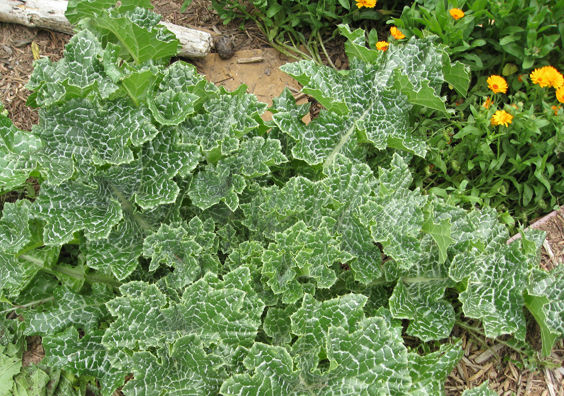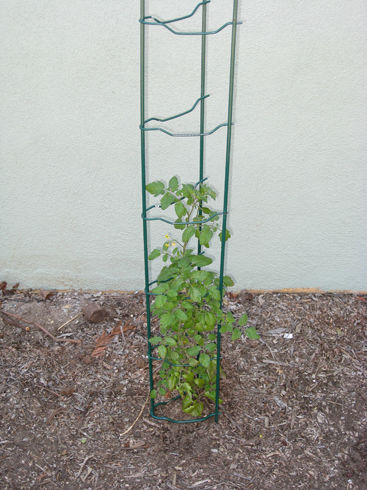I’m supposed to be a
garden guru with a bountiful garden year-round, right? When crops fail or disease sets in, my husband is thoughtful enough to remind me that a true gardener’s approach to gardening is
experimentation, and more specifically trial and error. So in the
spirit of true gardening, I present my latest error.
You may remember that I spent the winter growing milk thistle and chicory in my community garden plot to remove some excess zinc from the soil. Included in the results from the initial soil test was a recommendation to add gypsum to help increase the soil’s ability to hold moisture (water beads up on the surface of my hydrophobic soil), which would hopefully help reduce the zinc by way of washing out some of the salts.

Milk thistle prior to flowering
Well… I added the gypsum as recommended in fall.. and then I did it again this winter. Apparently that was too much. After removing all the milk thistle and chicory, I re-tested the soil. The results? My soil is now worse.
WHAT?!!! How could this be?
I spoke with Garn Wallace at Wallace Laboratories and he held my hand to explain the complex world of soil management. You see, adding gypsum may have helped with the hydrophobic soil, but it also lowered the pH of my soil toward acid – 6.3 (down from 7.2). By lowering the pH, I inadvertently made the zinc more available to the plants. Garn explained how zinc is more absorbable in acid soils than in alkaline soils.
WHO KNEW!??
The new recommendation is to add 6 pounds of calcium nitrate per 1,000 square feet. Rather than use a synthetic nitrogen, which was recommended, I’m opting for bloodmeal. My hunch, however, is to add some Biodynamic compost as well.
Here’s to trial and error – we learn so much along the way!




You are the ULTIMATE gardenerd, Christy!Nice post.